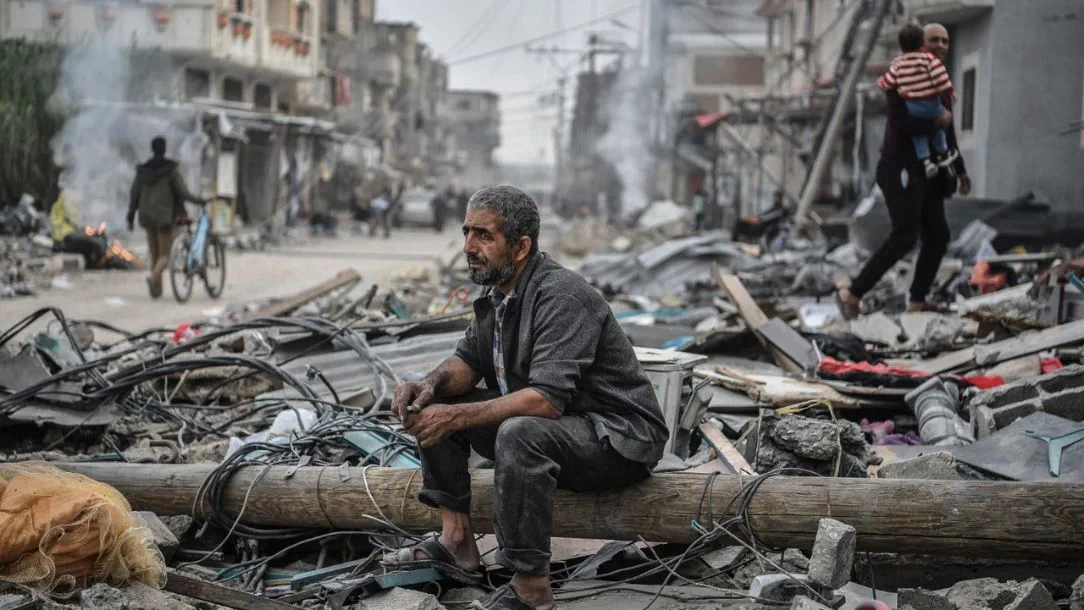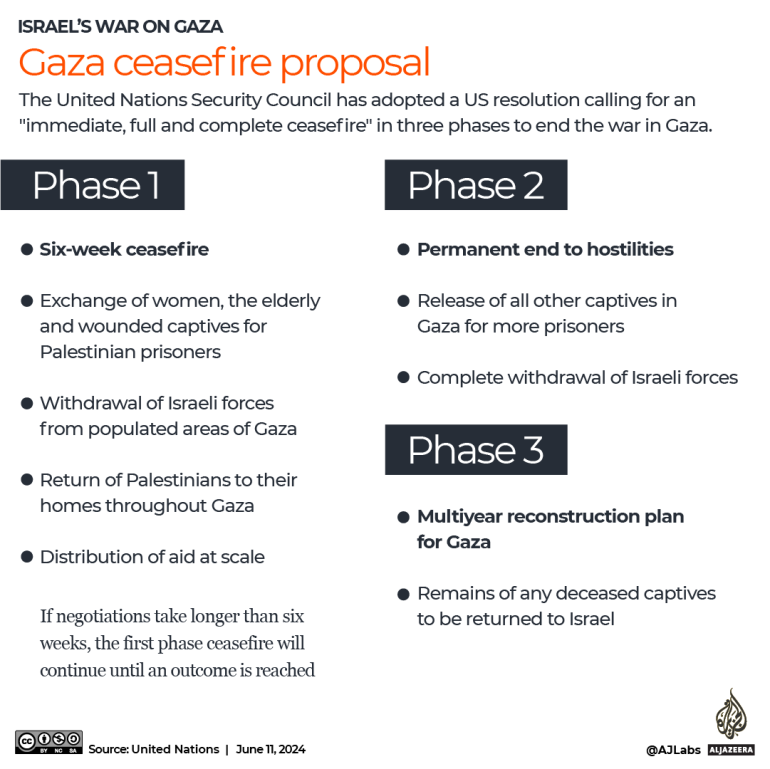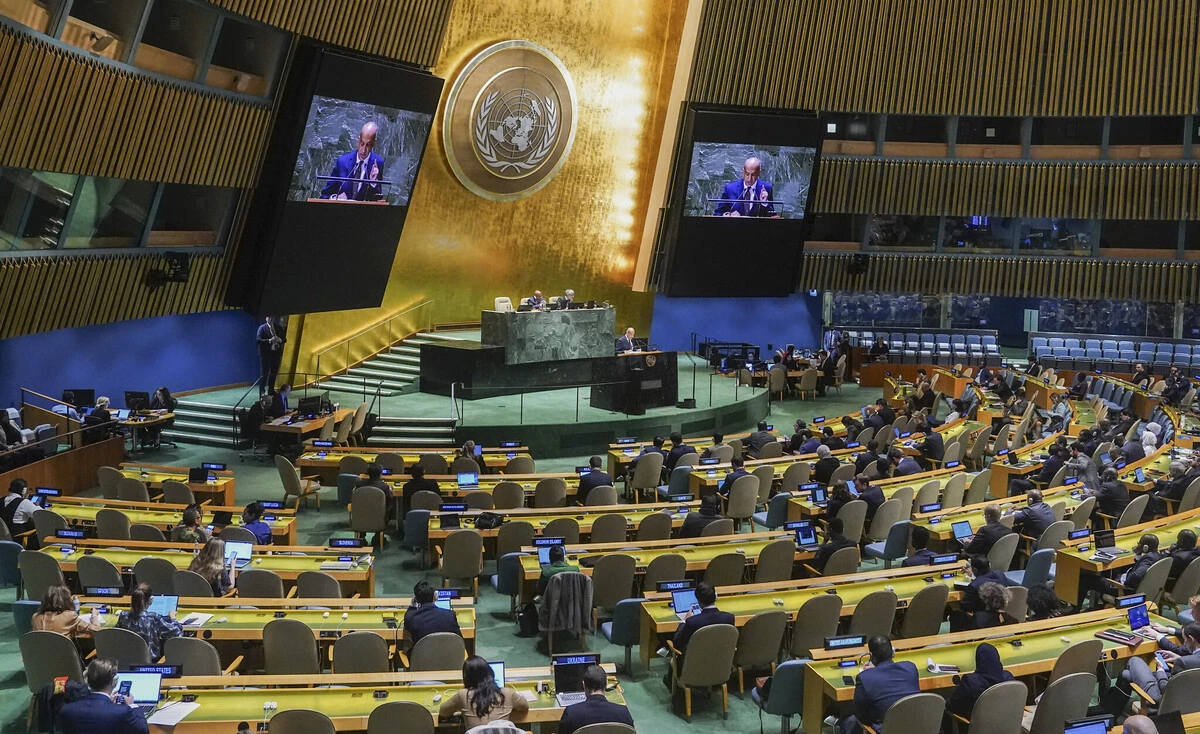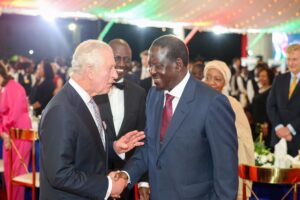The United Nations Security Council has approved a US-proposed ceasefire plan aimed at ending the ongoing conflict in Gaza. The resolution, which was adopted with a vote of 14-0, saw Russia abstaining. The plan, unveiled by US President Joe Biden on May 31, outlines a three-stage ceasefire and captive-release proposal and urges immediate and unconditional implementation by all parties.
The approved resolution calls for Israeli forces to withdraw from Gaza’s population centers, for Hamas to release all captives, and for humanitarian aid to enter Gaza at scale. The initial ceasefire is set to last six weeks, with the possibility of extension as negotiators work towards a permanent resolution.
Israel has officially accepted the plan, although there are concerns about its commitment, given recent statements from Prime Minister Benjamin Netanyahu. Netanyahu and some Israeli officials have expressed a desire to continue the war until Hamas is eliminated. Nevertheless, Hamas has welcomed the resolution and expressed readiness to engage in indirect negotiations for its implementation.
Reactions from Key Figures
US Ambassador to the UN, Linda Thomas-Greenfield, highlighted the significance of the resolution, noting that the Security Council has often faced divisions but managed to come together for this crucial decision. “Over the past eight months, this council has often faced divisions and the world has taken notice, with understandable frustration. But there’s another side to this story. Because today, we adopted the fourth resolution on this conflict,” she said.
I met today with US Secretary of State @SecBlinken.
— בני גנץ – Benny Gantz (@gantzbe) June 11, 2024
I reiterated the imperative of particularly during these times applying maximum pressure on the negotiators to secure Hamas’ agreement to the arrangement to bring the hostages home. I added that the party will support any… pic.twitter.com/IuDSvvplql
Palestine’s ambassador to the UN, Riyad Mansour, emphasized the importance of the ceasefire. “The number one item in that resolution is to have a ceasefire to end this fighting. And we are determined with our friends to make a long-lasting, permanent ceasefire,” Mansour stated.
Reut Shapir Ben-Naftaly, political coordinator for the Israeli Mission to the UN, warned against protracted negotiations. “Israel will not engage in meaningless and endless negotiations which can be exploited by Hamas as a means to stall for time,” she asserted.

Algeria’s ambassador to the UN, Amar Bendjama, expressed optimism about the resolution. “We voted in favour of the draft resolution because we believe it can represent a step toward an immediate and lasting ceasefire,” Bendjama remarked.
However, Russia’s ambassador to the UN, Vassily Nebenzia, expressed skepticism about the agreement’s specifics. “What specifically has Israel agreed to? Perhaps we will hear from the Israeli representative. The council should not sign up to any agreement that has vague parameters. Essentially this agreement gives carte blanche on details we don’t have,” Nebenzia cautioned.

Hamas and US Statements
Senior Hamas official Sami Abu Zuhri confirmed the group’s agreement to the resolution, emphasizing that it is now up to Washington to ensure Israel’s compliance. In a statement, Hamas reiterated its readiness to cooperate with mediators and engage in indirect negotiations to implement the agreement.
US Secretary of State Antony Blinken, speaking in Tel Aviv after meetings with Israeli officials, expressed confidence in the plan’s prospects. Blinken indicated that Israeli leaders, including Prime Minister Netanyahu and Defence Minister Gallant, showed strong support for the ceasefire proposal. “This proposal and moving forward on it is the first step. We want to see it come to fruition,” Blinken said.
The international community now watches closely as efforts to implement the ceasefire plan unfold, hoping for a sustainable resolution to the conflict that has brought significant suffering to the region.
















